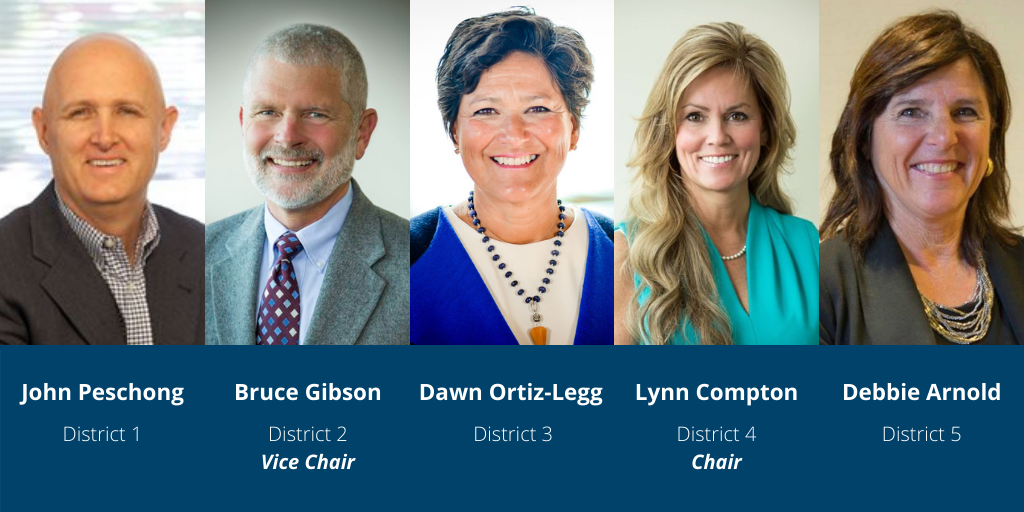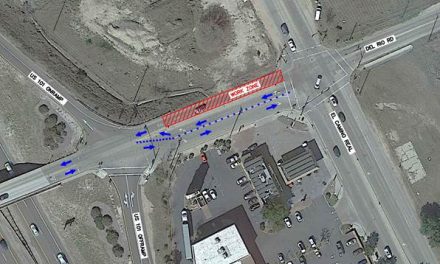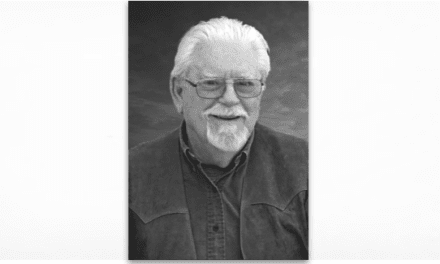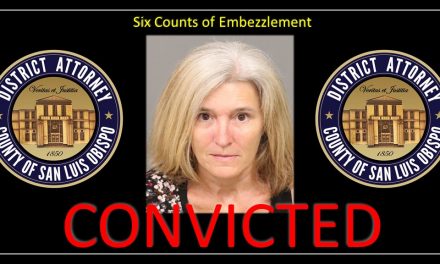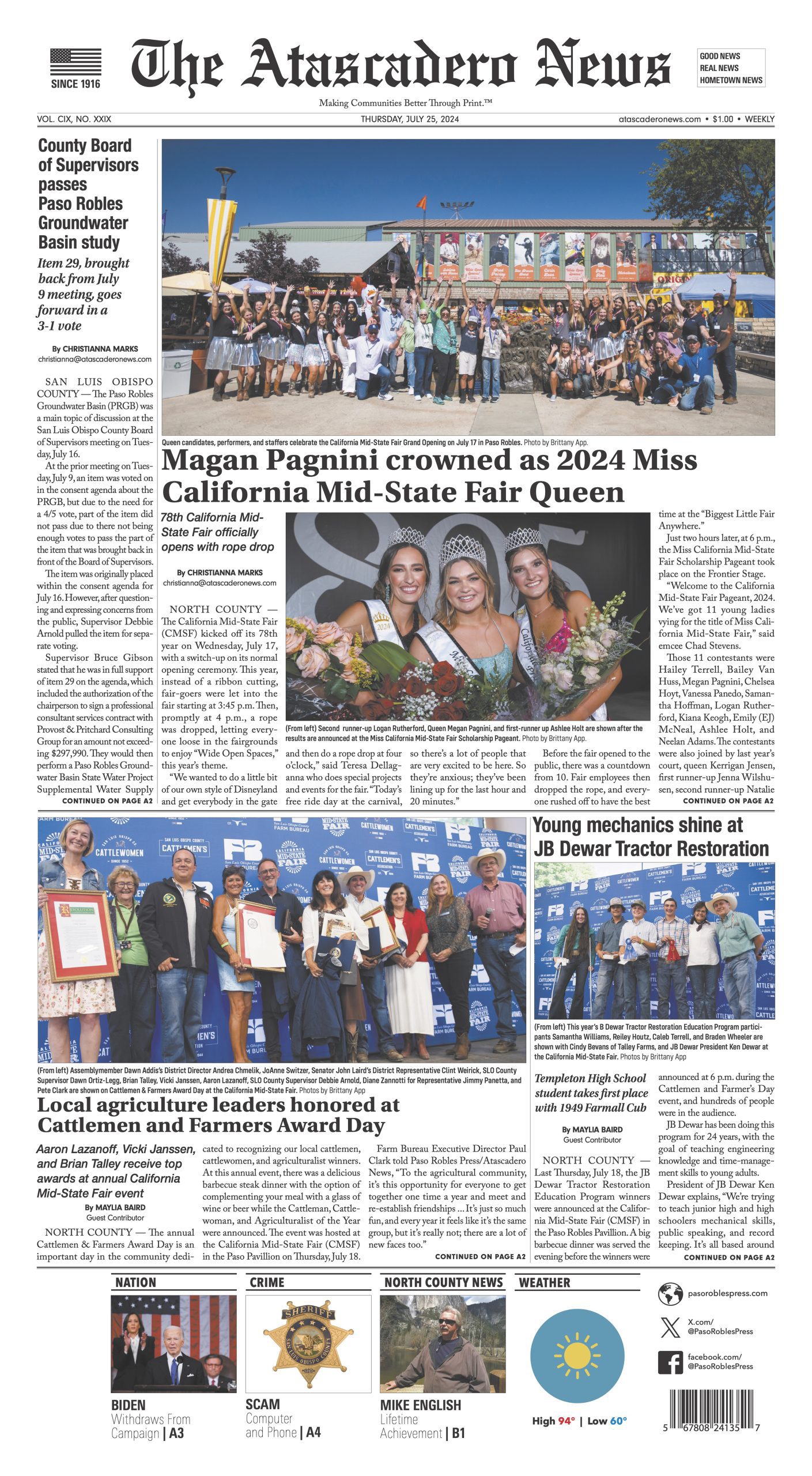County ordinance currently in place for Paso Robles Groundwater Basin set to expire in January 2022
SAN LUIS OBISPO — The SLO County Board of Supervisors met today, Jan. 26, starting at 9 a.m. and continued throughout the day discussing the many items facing the county.
The board approved Maryanne Zarycka as the District 1 representative to the Commission on Aging, John DeCou as District 5 representative to the First and Games Fines Committee, Ann Cochrane as the District 1 representative to the Parks and Recreation Commission, Paavo Ogren to the Water Resource Advisory Committee as the District 3 representative, Tom Ikeda as the District 3 representative to the Agricultural Liaison Advisory Committee, Craig Pritchard to the Agricultural Liaison Advisory Committee as the District 1 representative, Erica Baltodano to the Civil Service Commission as the District 3 representative.
The board heard from Karen Lange and Paul Yoder of the Shaw Yoder Antwih Schmelzer and Lange regarding the state legislative platform and the potential changes regarding renters and small landlords. The moratorium on evictions that was due to end Jan. 31 is looking to be extended to June. With the additional funds, the state received this year, specifically because of AirBNB and Door Dash going public, there is available funding to be allocated for renters and landlords. In effect, landlords who are willing to extend rent forgiveness looking backward will be eligible to receive aid from the federal government for up to 70 percent of the rent owed, in exchange for an agreement to continue to forgive 30 percent of the rent going forward.
The two most significant topics on the agenda were the potential lawsuit against Governor Gavin Newsom to remove San Luis Obispo County from the Southern California Region and the direction on land use policy development for the Paso Robles groundwater basin.
The board heard from over 50 community members regarding the lawsuit against Newsom, both for and against, with the overwhelming majority being from community members who approve and support the suit.
Business owners, such as Kevin Kennedy, owner of Kennedy Club Fitness with four locations along the central coast, Patty Hoover, owner of Still Waters Vineyard, and Aaron Burgh, owner of Calwise Distillery in Templeton, all championed for the right to be open and provide for their families and jobs for their employees.
“At no point should anyone be allowed to shut down my only method to earn a living and provide for my family,” stated Brad Daughtery, owner of Cider Creek Bakery in Paso Robles and founder of the San Luis Obispo County Small Business Coalition.
Not all opinions were in favor of the lawsuit, however. Gerri Clemens of San Luis Obispo called in with a different opinion, “I believe that we need to support Governor Newsom and what he’s trying to do.” While sympathetic to the financial fears of many business owners, she believes that human health of all Californians is a greater concern and supports the measures in place to reduce spread in the community.
After hearing from the community, the board met for a closed session to discuss the lawsuit and other items and returned at 2 p.m. to discuss any resolutions from the closed session along with the direction on land use policy development for the Paso Robles Groundwater Basin. Districts 1 and 5.
Chairperson Lynn Compton asked legal counsel if there was anything to report from closed session, and Rita Neal replied no, nothing to report.
The board of supervisors moved on to the county ordinance currently in place for Paso Robles Groundwater Basin, which is set to expire in January 2022. The current ordinance requires growers to get approval to have new or expanded planting but doesn’t help the deficit the county already has in groundwater since it doesn’t address existing plantings.
Kylie Hensley presented a 3-tiered temporary ordinance proposal that would act as a stop-gap from January 2022, when the current ordinance ends, until the new Ground Water Sustainability Program (GSP) can go into effect. This new GSP would establish a methodology for determining baseline pumping, a method for whose use must be limited and by how much, establish a timeline for limitations on pumping (also known as “ramp down”), and approval of formal regulation to enact the plan. This 3-tier ordinance would have a sunset clause of 2045, with a six-year lookback period and a 25-acre foot threshold.
The board heard from many long-time community members, vineyard managers, and ranchers, all with varied opinions on how to best proceed to protect the groundwater basin. Some of the many concerns were regarding credits for water and restriction on current water usage.
Supervisor Debbie Arnold addressed the community, “I appreciate all the comments from all the callers…this has been a long journey the last eight years,” she continued by reminding callers that the current ordinance restricted water use for some while allowing others to use water unchecked. She continued that this new tiered program would not affect existing irrigation at all. She urged the supervisors to vote with her.
Supervisor John Peschong raised a few questions regarding specifics and said that while the plan still needed to be revised, he agreed with the plan of heading in the direction of the three-tiered program.
Supervisor Bruce Gibson, however, was stunned that North County supervisors were considering approving this ordinance. “I can’t see what this accomplishes except to make a bad situation worse.” He continued by saying that without any identified funding source, the cost associated with this plan to accommodate entities within the Paso Basin to begin watering appears only to be subsidized by county taxpayers. His vote would be to extend the current ordinance three to five years until we see the GSP’s actions begin to take effect.
Supervisor Dawn Ortiz-Legg acknowledged that protecting the water is everyone’s primary concern. She agreed with Gibson that the best way to do that at this time would be by extending the current emergency ordinance for a few years more while we focus on restoring the groundwater.
Arnold made a motion to move forward with the 3-tier program, seconded by Peschong. After a lengthy discussion, it was voted for by Arnold, Peschong, and Chairperson Lynn Compton and voted no by Gibson and Ortiz-Legg.
The full audio of the meeting can be found here.

